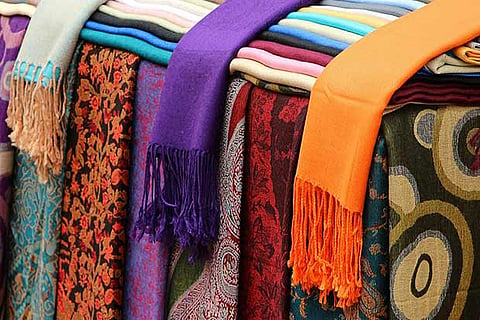

Shimla
Himachal Pradesh is promoting Pashmina -- globally acclaimed fine luxury fibre cashmere -- by encouraging shepherds settled in high mountains where temperatures plunge to as low as 20 degrees Celsius to breed Himalayan goats, a minister said on Wednesday.
The goat named Changthangi plays an important role in revitalising the economy of the poverty stricken tribes.
The state is annually producing 1,000 kg Pashmina wool production and it aims to double its production in five years, Animal Husbandry Minister Virender Kanwar told IANS.
These goats provide the wool for Kashmir''s famous Pashmina shawls that commands huge demand worldwide.
The state will provide 638 goats of the Changthangi and Chegu breeds to families in the Pashmina producing snow-bound areas in Lahaul-Spiti and Kinnaur districts and Pangi in Chamba district under the National Livestock Mission, he said.
Under the mission, 29 units, each comprising 10 does and one buck, of both Changthangi and Chegu species will be provided.
Each unit will cost Rs 70,000. Ninety per cent cost will be borne by the Central government, while the state and the beneficiary will share the remaining cost in equal proportion.
The livestock will be provided in this fiscal.
At present, Oashmina is produced predominantly in Darcha, Yochi, Rarik-Chika villages and Mayar valley in Lahaul, besides Kibber, Langza and Hangang in Spiti, Nako, Namgya and Leo in Kinnaur district and certain areas in the Pangi valley of Chamba.
There are around 10 organized shawl manufacturing units working in the state. They are located in Rampur in Shimla district, Sundernagar and Mandi in Mandi district, Shamshi and Hurla in Kullu district and Sangla and Reckong Peo in Kinnaur district.
Around 90 per cent Pashmina wool is used in apparels like shawl, stoles and mufflers and the remaining in other products like high-end coat tweeds.
The Pashmina wool is sold mainly through retail. Predominantly, white and natural grey colour wool is being used in the shawl manufacturing units.
The Pashmina producers are getting remunerative prices. Currently, the raw Pashmina price is approximately Rs 3,500 per kg.
In the organized and unorganized sector, nearly 12,000 artisans are working in the state.
The state is home to 2,500 Changthangi goats.
Visit news.dtnext.in to explore our interactive epaper!
Download the DT Next app for more exciting features!
Click here for iOS
Click here for Android